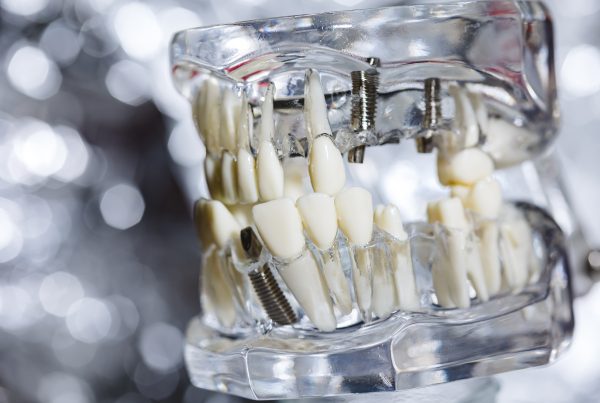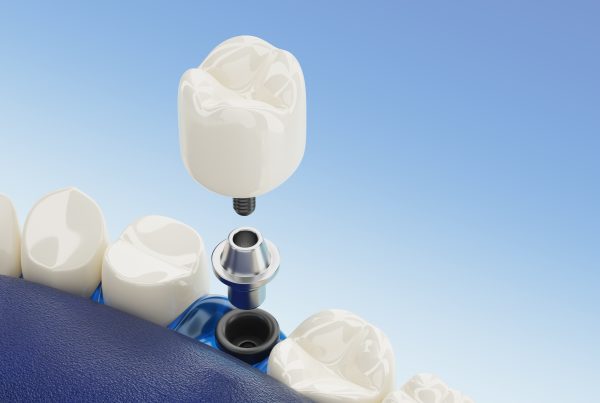Can You Afford Dental Implants With Bad Credit?
If you're considering dental implants but find yourself grappling with a less-than-ideal credit score, rest assured that options are available. While a poor credit history may pose some challenges, it doesn't necessarily mean you have to forgo the benefits of dental implants. In this guide, we'll explore potential avenues for obtaining dental implants with bad credit, offering insights into alternative financing solutions and tips to navigate the process successfully. Your journey to a confident smile may be more accessible than you think, even if your credit history has seen better days.

What are dental implants, and why are they considered a popular option for tooth replacement?
Dental implants are advanced tooth replacement solutions designed to mimic the natural structure of teeth. They consist of a titanium post that is surgically implanted into the jawbone, serving as a sturdy foundation for a prosthetic tooth or crown. Over time, the titanium post fuses with the jawbone through a process called osseointegration, creating a durable and permanent anchor for the replacement tooth. The prosthetic tooth attached to the implant is carefully crafted to match the shape, size, and color of the surrounding natural teeth, providing a remarkably natural and aesthetically pleasing result.
The popularity of dental implants stems from their numerous advantages compared to traditional tooth replacement options like dentures or bridges. Dental implants offer unparalleled stability and functionality, allowing individuals to bite, chew, and speak with confidence. Unlike dentures, implants are fixed in place and do not require adhesives, providing a more comfortable and secure solution. Additionally, dental implants promote jawbone health by stimulating bone growth through osseointegration, preventing the bone loss that often occurs with missing teeth. As a result, dental implants are not just a cosmetic enhancement but also contribute to long-term oral health and overall well-being.
How does bad credit affect the ability to finance dental implant procedures?
Bad credit can significantly impact the ability to finance dental implant procedures, as it often serves as a key factor in the approval process for loans or credit-based financing options. Individuals with poor credit may face higher interest rates, stricter eligibility criteria, or even outright denial of financing from traditional lenders. Dental implant procedures can be costly, and the reliance on credit may be crucial for many patients. Bad credit can limit access to favorable financing terms, making it challenging to secure affordable payment plans. In some cases, individuals with poor credit may need to explore alternative financing options or seek providers that specialize in accommodating those with less-than-perfect credit histories. Overall, the financial constraints imposed by bad credit can pose hurdles for individuals seeking dental implants, requiring careful consideration of available options and potential strategies to overcome these challenges.


Are there specific financing options or dental implant providers that cater to individuals with bad credit?
Yes, there are specific financing options and dental implant providers that cater to individuals with bad credit. Some dental clinics or implant providers may offer in-house financing options, allowing patients to make manageable monthly payments directly to the provider. Additionally, there are third-party financing companies that specialize in healthcare financing, including dental procedures. These companies may have more lenient credit requirements and offer payment plans tailored to individuals with bad credit. It’s important for individuals with poor credit to explore these alternative financing avenues and discuss their specific situation with dental providers to find a solution that fits their needs. While the terms and conditions may vary, these options can provide a pathway for individuals with bad credit to access the benefits of dental implants without facing insurmountable financial barriers.
What alternatives exist for those with poor credit who are seeking dental implants?
Individuals with poor credit seeking dental implants can explore several alternatives to secure financing or manage the costs effectively:
- In-House Financing: Some dental clinics offer in-house financing, allowing patients to make installment payments directly to the provider. These plans may have more flexible credit requirements.
- Third-Party Financing: There are third-party financing companies specializing in healthcare loans. These companies may consider factors beyond credit scores and offer extended payment plans tailored to individual financial situations.
- Dental Savings Plans: Dental savings plans operate similarly to insurance but without the traditional premiums, deductibles, or credit checks. Members pay an annual fee and receive discounted rates on dental procedures, including implants.
- Charitable Organizations: Some charitable organizations and nonprofits provide assistance for dental care, including dental implants, to individuals in financial need.
- Negotiating with Providers: Patients can discuss their financial situation directly with dental providers. Some may be willing to offer discounts, flexible payment plans, or explore alternative arrangements.
- CareCredit: CareCredit is a healthcare credit card that can be used for various medical expenses, including dental procedures. It offers different financing options, and approval may be possible with less-than-perfect credit.
Exploring these alternatives and having open communication with dental providers can help individuals with poor credit find a viable solution to make dental implants more accessible.


Can a co-signer or guarantor improve the chances of approval for dental implant financing with bad credit?
Yes, having a co-signer or guarantor can potentially improve the chances of approval for dental implant financing, especially for individuals with bad credit. A co-signer is someone who agrees to be responsible for the loan if the primary borrower fails to make payments. Their creditworthiness and financial stability can reassure lenders, increasing the likelihood of approval and potentially securing more favorable terms.
Having a co-signer with a good credit history can offset the impact of the primary borrower’s bad credit and provide the lender with additional assurance. It’s important for both the primary borrower and the co-signer to understand the responsibilities involved, as the co-signer becomes equally liable for the debt.
Before pursuing this option, individuals should discuss the implications with potential co-signers and ensure they are comfortable with the arrangement. Additionally, it’s crucial to choose a financing option that allows for co-signers or guarantors, as not all lenders or providers may offer this flexibility.
Can insurance cover any part of the cost of dental implants, especially for individuals with bad credit?
Dental insurance coverage for dental implants varies, and it’s generally not guaranteed to cover the entire cost of the procedure. Dental insurance plans often categorize dental implants as a cosmetic or elective procedure, which may result in limited coverage or exclusion from coverage altogether.
However, it’s essential for individuals with bad credit to explore their specific insurance policy details. Some insurance plans may provide partial coverage for certain aspects of the dental implant process, such as the crown or abutment, even if the implant itself is not covered.
Additionally, there may be dental discount plans or savings plans that individuals can enroll in to receive reduced rates on dental procedures, including implants. While not insurance, these plans can help offset some of the costs.
Individuals with bad credit should check their insurance policies, inquire about coverage details, and explore alternative financing options or assistance programs to make dental implants more financially manageable.


How can one improve their chances of securing financing for dental implants despite having bad credit?
Improving the chances of securing financing for dental implants despite having bad credit involves several strategies:
- Research Financing Options: Explore dental clinics or providers that offer in-house financing, and look into third-party financing companies that specialize in healthcare loans. Some may have more lenient credit requirements.
- Build a Co-Signer or Guarantor Relationship: Having a co-signer or guarantor with a better credit history can enhance approval chances. Ensure the co-signer understands the responsibility and is willing to support the financing application.
- Check for Flexible Payment Plans: Inquire with dental providers about flexible payment plans that accommodate different financial situations. Some may offer customized plans to make the cost of dental implants more manageable.
- Consider Healthcare Credit Cards: Look into healthcare credit cards like CareCredit, which are designed for medical expenses. They may have more lenient credit requirements and offer promotional financing options.
- Demonstrate Stable Income: Lenders may consider stable income as a positive factor. Provide proof of regular income, employment stability, or other sources of financial support to strengthen the financing application.
- Budget and Save: Create a budget to manage expenses and save for the dental implant procedure. A down payment or demonstrating a commitment to saving can positively impact the financing approval process.
- Address Credit Issues: Take steps to improve credit by addressing outstanding debts, paying bills on time, and reducing credit card balances. Check and correct any errors on the credit report.
- Seek Financial Counseling: Consult with financial counselors or advisors who can provide guidance on managing debt, improving credit, and finding suitable financing options.
- Explore Charitable Organizations: Research charitable organizations or nonprofits that may provide assistance for dental care. Some organizations focus on helping individuals with financial constraints access necessary dental procedures.
Combining these strategies and being proactive in exploring options can increase the likelihood of securing financing for dental implants, even with a less-than-perfect credit history.



